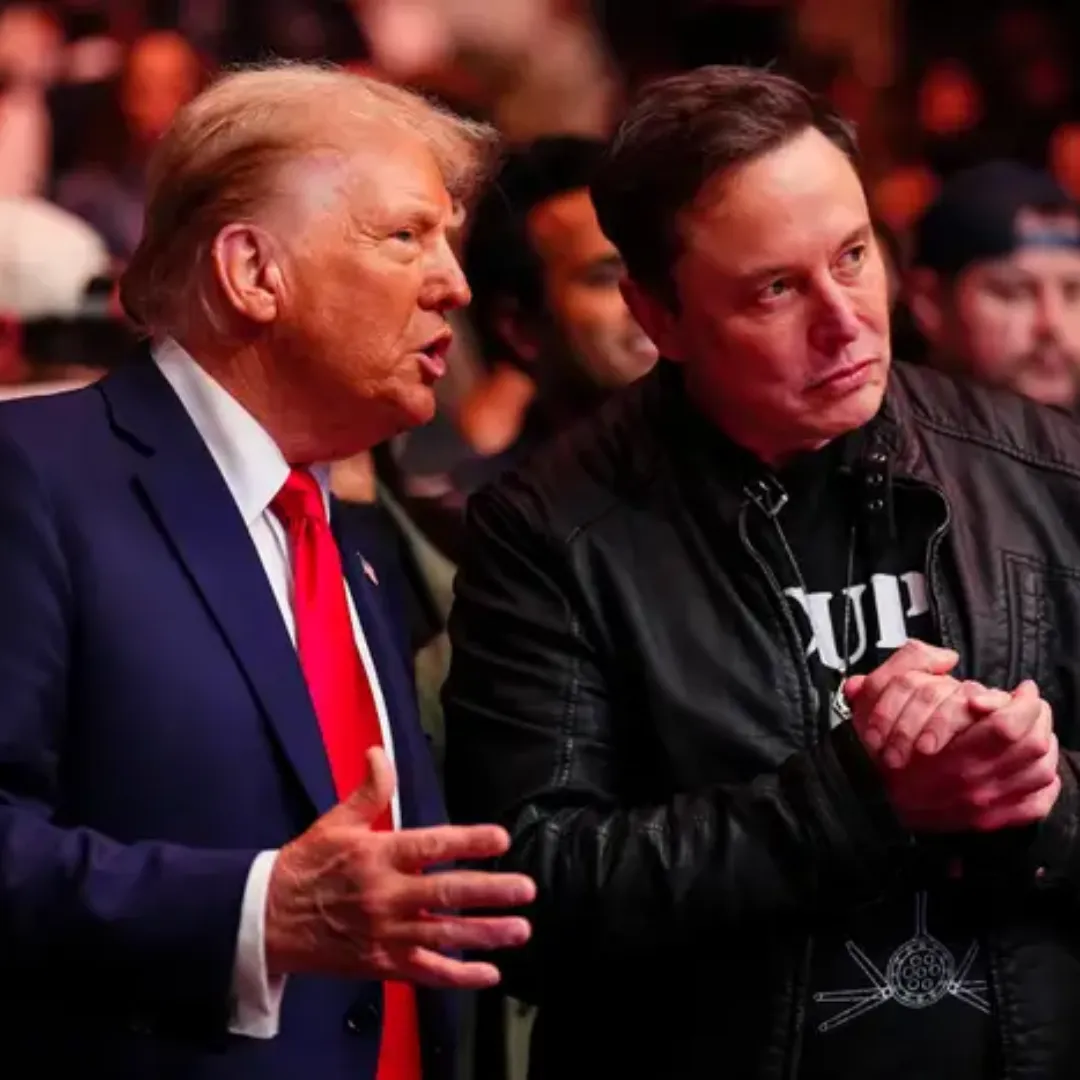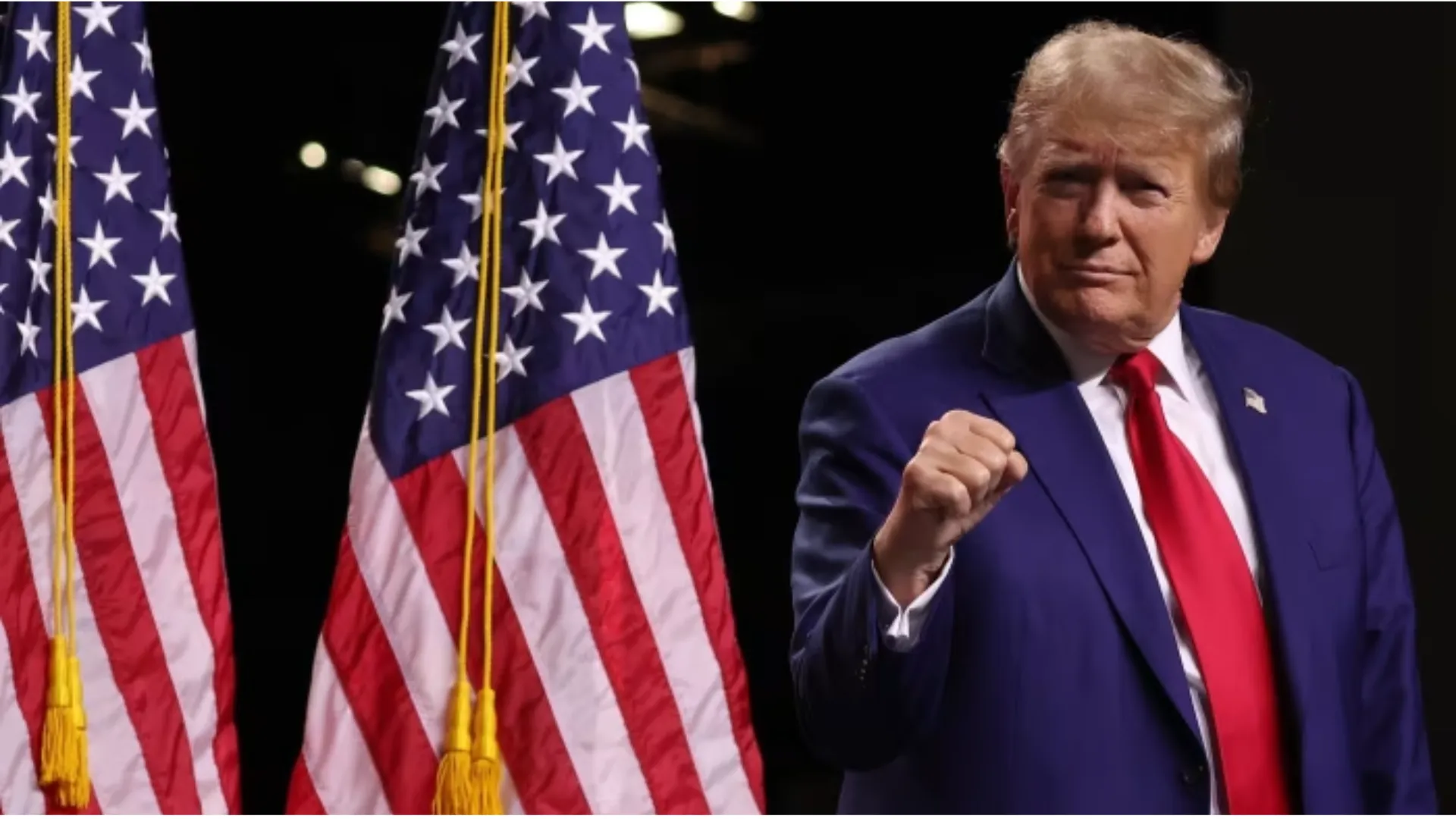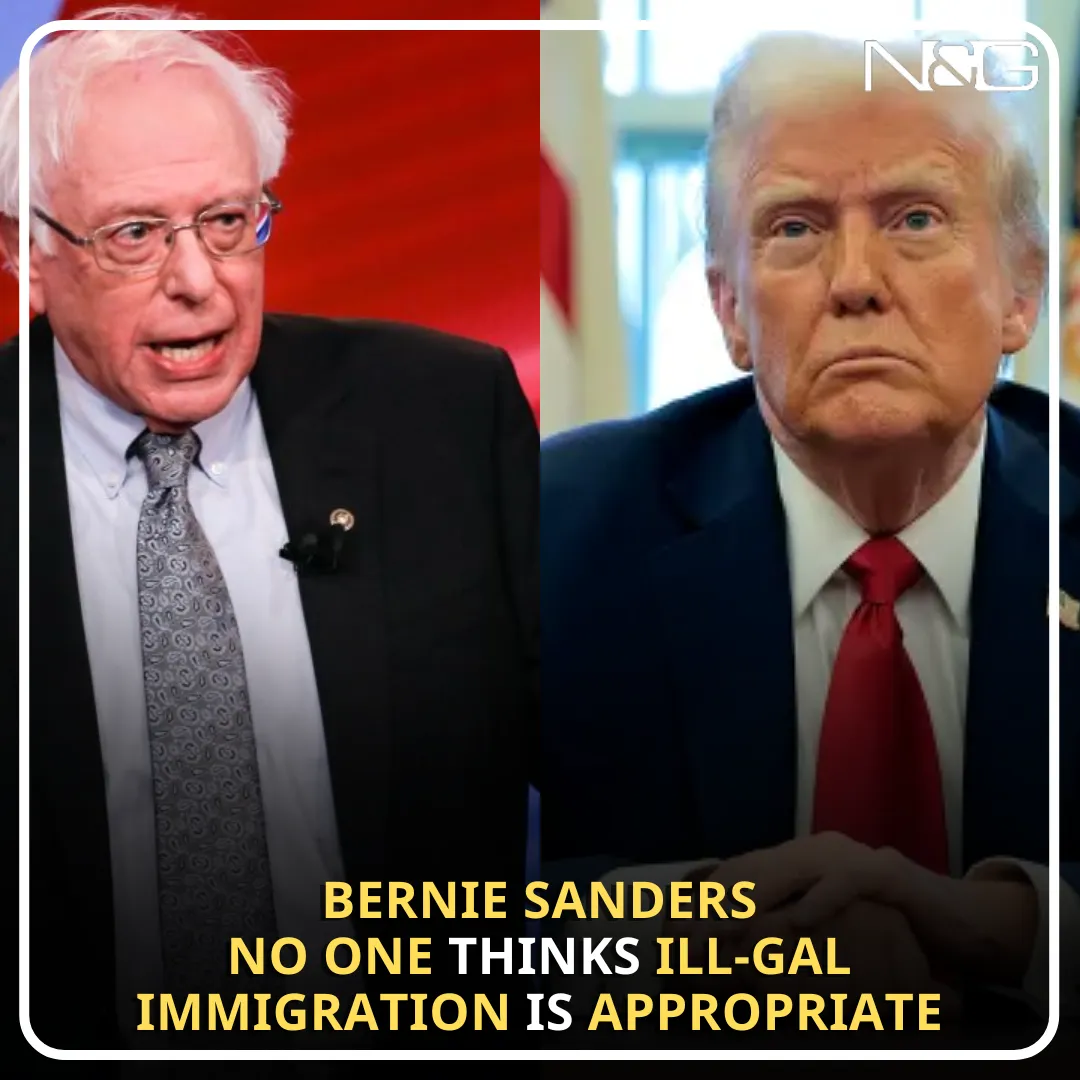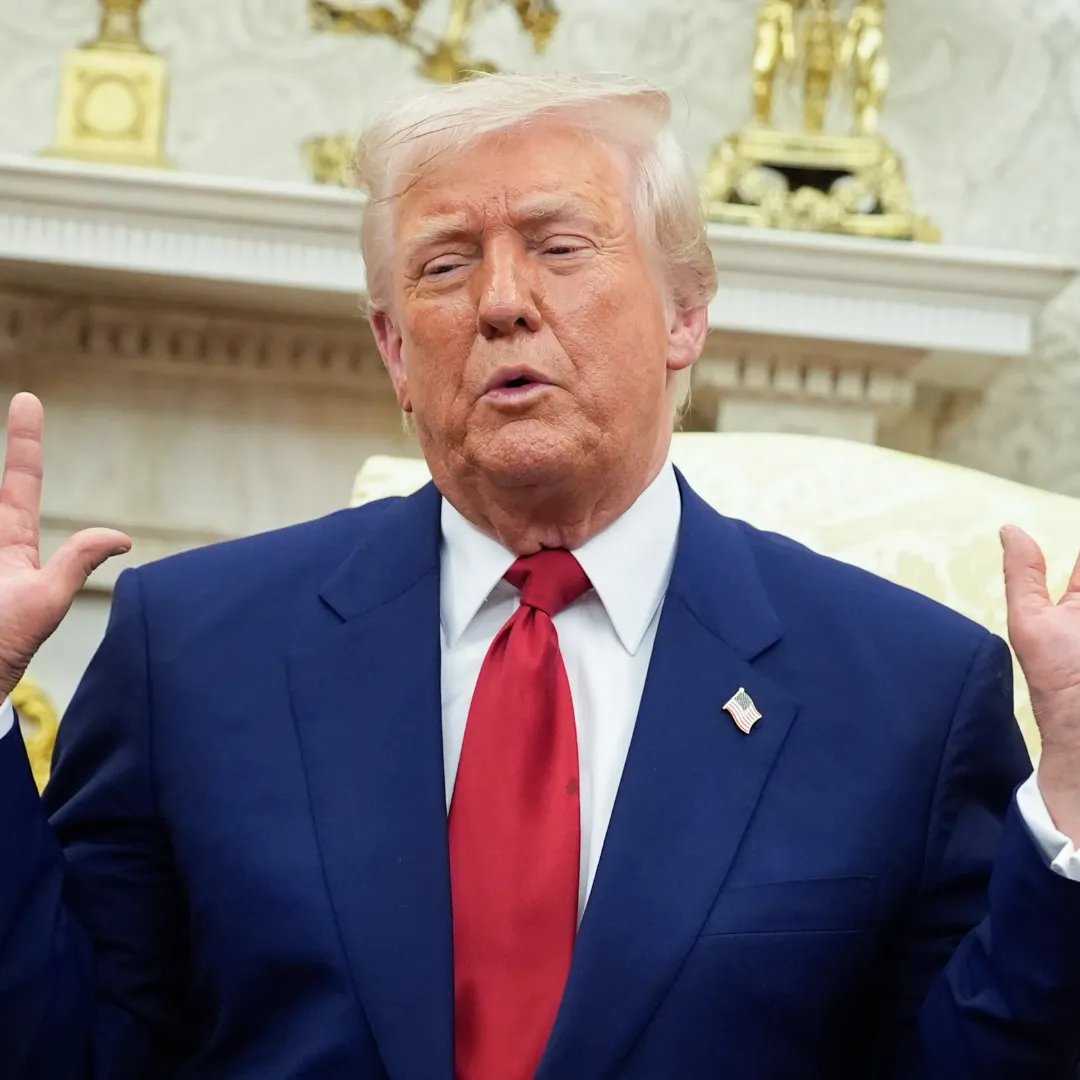
Former President Donald Trump delivered a confident, and at times confrontational, message to House Republicans during a fundraising dinner Tuesday evening, asserting that his aggressive tariff policy will strengthen their position ahead of the 2026 midterm elections.
Speaking at the National Republican Congressional Committee (NRCC) event in Washington, Trump painted a rosy picture of electoral dominance fueled by bold economic moves—even as markets wobbled and tensions mounted inside the GOP itself.
“We’re going to win the midterm elections and we’re going to have a tremendous, thundering landslide. I really believe that,” Trump declared from the podium, met with cheers from GOP donors and House allies.
The former president, who remains the party’s most dominant figure, tied his forecast of Republican success directly to his latest round of tariffs—a sweeping hike that has sent economists scrambling and raised concerns among lawmakers on both sides of the aisle.
On Tuesday morning, just hours before the dinner, Trump announced a new 50 percent tariff layered on top of a previous 54 percent rate targeting Chinese imports, bringing the total to a staggering 104 percent, set to take effect just after midnight.
“It’s so important that we pass the big, beautiful bill,” Trump said at the dinner. “And I really think we’re helped a lot by the tariff situation that’s going on, which is a good situation. It’s going to be legendary, you watch.”
His remarks came as financial markets gave up early gains, with investors reacting to the heightened trade tensions and bracing for international retaliation. But for Trump, the tariffs are more than economic policy—they’re campaign messaging.
“These countries are calling me up kissing my ass,” he boasted. “And then I’ll see some rebel Republican, some guy that wants to grandstand and say, ‘I think that Congress should take over negotiations.’ Let me tell you, you don’t negotiate like I negotiate.”
Trump’s off-the-cuff style and hardball tactics have long been hallmarks of his political persona, but this latest trade push is testing the patience of some congressional Republicans.

A bipartisan group of lawmakers has introduced legislation in both the House and Senate that would limit the president’s power to impose tariffs without congressional approval. Under the proposed law, any new tariffs would expire after 40 days unless explicitly ratified by Congress.
Rep. Don Bacon (R-Neb.) is helping lead the effort in the House, while Sen. Chuck Grassley (R-Iowa) is backing the same push in the Senate. Their concern: the economic uncertainty created by sweeping tariffs that could disrupt global supply chains, raise consumer prices, and damage international alliances—all without sufficient checks from the legislative branch.
“I think Congress has been far too willing to hand off trade authority to the executive,” Grassley said in an earlier hearing. “That needs to change.”
Still, Trump was unbothered by the criticism on Tuesday night. His message to Republicans was clear: trust the strategy, rally the base, and don’t flinch.
“We won’t just keep our majorities; we’ll expand our majorities by a lot,” Trump said, pointing to the GOP’s current 220-213 majority in the House. “The party is doing well and there is no reason why we shouldn’t get together and win these midterms and win them by a lot.”
But Democrats see an opportunity. The new tariffs—and their potential to drive up prices—have become a central talking point for Democratic strategists heading into 2026. With inflation and the cost of living already top-of-mind for voters, Democrats are aiming to link GOP lawmakers directly to economic hardship.
“Republicans are raising prices for families,” said Rep. Suzan DelBene (D-Wash.), chair of the Democratic Congressional Campaign Committee (DCCC). “With the cost of living being a top issue in the election last year, it’s not surprising that it’s a top issue right now—and something that Republicans promised to address.”
DelBene didn’t hold back when describing the administration’s approach. “This is chaos, dysfunction, and the president implementing tariffs with no plan,” she said.
“And it’s not done yet because we’re going to continue to see retaliation from the international community, so there are long-term impacts. He can break things very easily, and it’s hard to put them back together.”
Economists have expressed similar concerns. A 104 percent tariff on Chinese imports could lead to sharp price increases for a range of consumer goods, including electronics, clothing, and appliances.

Critics argue the tariff will function like a hidden tax on American families, even as Trump frames it as a populist, America-first policy.
But Trump’s calculus is clear: tariffs show strength. They’re easy to understand, polarizing enough to energize the base, and they allow him to brand himself as a dealmaker and protector of American workers.
And for now, many House Republicans are sticking with him.
“I think it’s a winning strategy,” said Rep. Marjorie Taylor Greene (R-Ga.), when asked about the tariff hike. “Voters love someone who stands up to China.”
Yet, in private, some GOP members are worried. One House aide, speaking anonymously, said, “We’re trying to run on lowering costs, and now we’re looking at headlines saying Republicans back 100 percent tariffs? That’s a tough message in suburban districts.”
The battle within the GOP reflects a larger shift: the party’s center of gravity has moved away from traditional, free-market conservatism and toward economic nationalism. Trump’s influence over the party has reshaped its views on trade, foreign policy, and economic intervention.
Even among supporters, there is caution. Sen. J.D. Vance (R-Ohio), one of Trump’s staunchest allies, said he supports using tariffs to protect American industries—but only with “a long-term plan and a clear endgame.”
“What we don’t want,” Vance said, “is to get caught in an endless trade war where families are paying more and businesses are operating in the dark.”
Meanwhile, business groups and trade associations are sounding alarms. The U.S. Chamber of Commerce issued a statement Tuesday warning that the tariff escalation “risks serious harm to American consumers and exporters.”
China has yet to announce formal retaliation, but analysts expect countermeasures in the coming days. In previous trade disputes, Beijing targeted American agriculture—a sector with deep ties to Republican states—as a way to apply political pressure.
For Trump, however, the uncertainty appears to be part of the appeal. He thrives in the unpredictable.
“They keep saying it’s risky,” Trump said at the dinner. “Well, sometimes you have to take a risk. That’s how we win.”

Whether the gamble pays off remains to be seen. The 2026 midterms are still over a year away, but the economic landscape may be shaped by decisions made in the next few weeks. With a divided country, a volatile global market, and a shifting political coalition, the tariff issue is poised to become a defining theme.
And unlike most campaign talking points, this one has a direct impact on the checkout line, the shipping dock, and the dinner table.
“There’s no messaging around this,” one senior Democratic strategist said. “It either works, or it hurts.”
For lawmakers like Grassley and Bacon, the path forward is legislative. “We need a process,” Grassley said. “This isn’t about one president—it’s about restoring balance.”
But for Trump, the path is electoral. Tariffs are not just policy—they’re a bet. A bet that voters will see him as the only one willing to take action, no matter how high the price.



